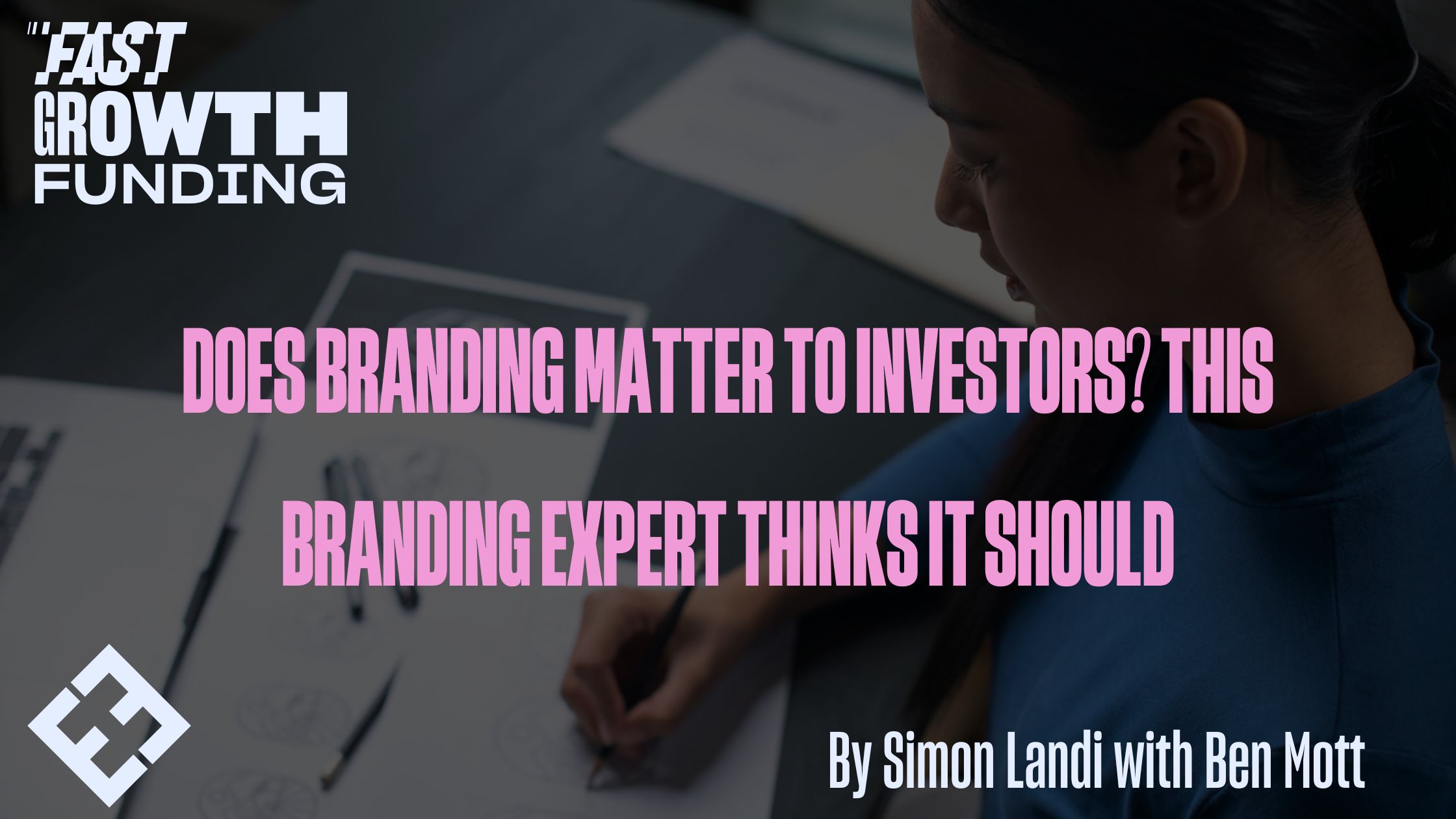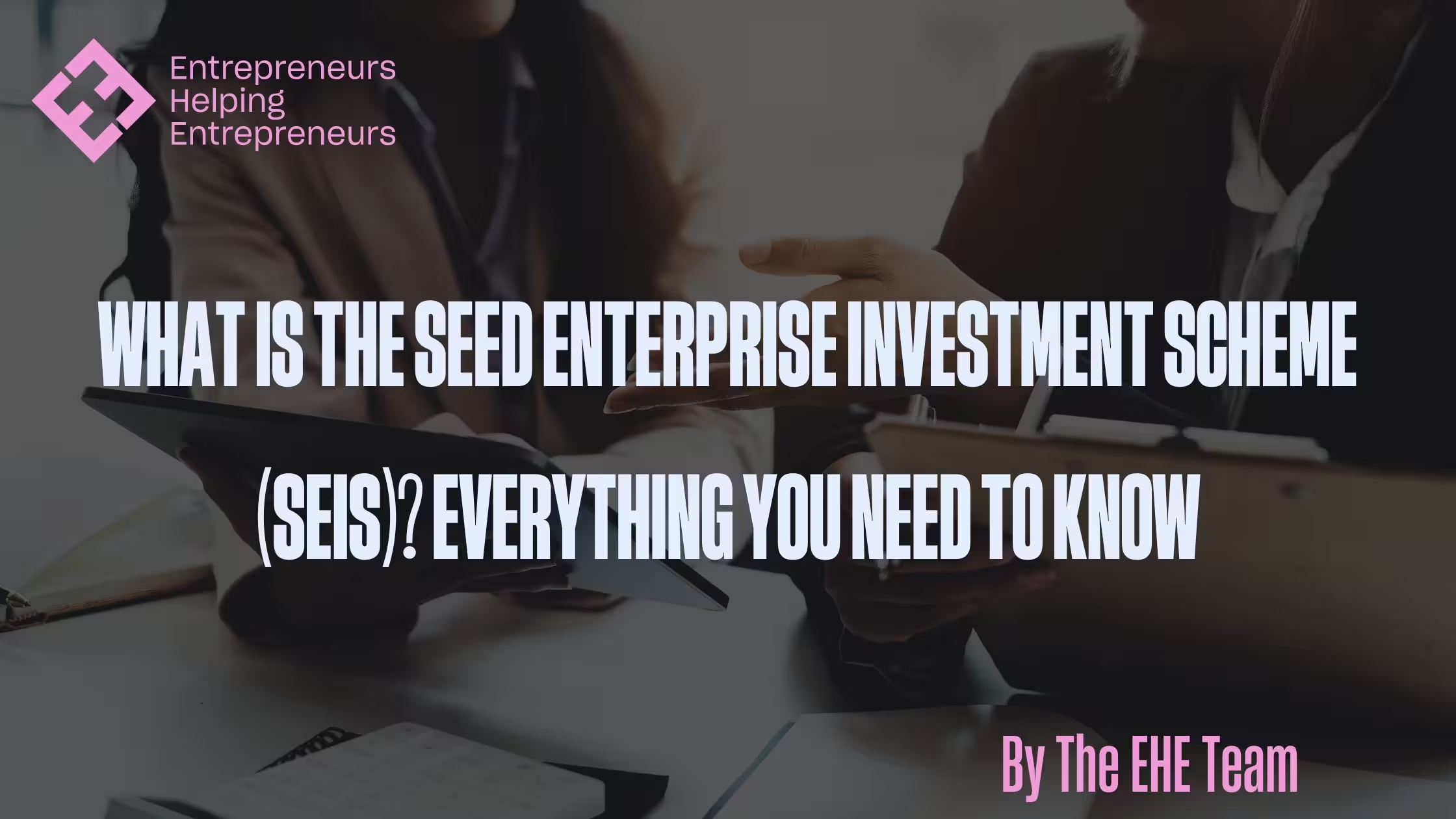News & Insights


Does Branding Matter To Investors? This Branding Expert Thinks It Should
By Simon Landi with Ben Mott
For the average startup, branding is everything. In today’s competitive market, every startup needs effective branding to communicate its story and build trust with its target audience and customers. What’s more, a proper branding strategy could also be the key to securing investment.
But what does this look like from the investor’s point of view?
Understanding the impact that branding has on a startup’s success is important – not just for the founder, but also for you as an investor. When you develop this understanding, you’ll be able to make better investment decisions and, of course, support the founders along their journey.
Branding: it’s not as complicated as you think
We’ve come to recognise that conversations around branding are often more complicated than they need to be. That’s why, on the most recent episode of Fast Growth Funding, we spoke to Ben Mott, the Managing Director and Co-founder of FutureKings, a branding agency for startups.
Ben was able to provide some insights into how both founders and investors need to think about branding and how FutureKings, as an agency, helps businesses better tell their stories.
You can listen to our full conversation on the podcast.
How should startups think about branding in the very early stages?
Many founders often feel like they only need to worry about branding at the later stages of their journey. However, Ben explains that the sooner startups start thinking about branding, the better.
Ben: “We’ve compared the portfolio of businesses we’ve worked with over the last eight years. The businesses that started with us on day zero (or even before) have, to a large extent, succeeded in their journeys far more quickly and efficiently than the ones that came later into the process.
This isn’t to say that you cannot come later if you need to. There are lots of reasons why businesses look at branding further down the line. There’s really no right or wrong. It’s just what’s best for that individual business at that time.
But we have definitely seen that the businesses that engage in the branding programme earlier tend to use that to their advantage. It’s a really powerful tool, if not the most powerful one, they have in their armoury.”
The founder, the pitch deck and the idea
As an investor, you can probably relate to reviewing multiple pitch decks each year. But what exactly are you vetting the deck for? In today’s world, people buy people. Consumers aren’t just looking for an idea, they’re also looking for (and vetting) the people behind it.
This means that to prove their startup is investable, founders need to showcase their individual/personal brand in the pitch deck. Does the founder have what it takes to live, breathe and own that idea? How sure are you that they’d be able to sell it to their target audience?
A large chunk of business success hinges on the ability to sell a good story – and that’s one thing you need to be on the lookout for.
Ben: “When building a pitch deck, founders often have two things happening concurrently. There’s the fundraising effort, which needs its own story and proposition to take to investors, and then they also have to think about what the business is going to do in its market.
More often than not, we encourage the founders to talk about themselves and their starting point first because that is a critical part of investor communication.
That said, we do have other examples over the years where the technology or the idea was so powerful that it naturally became the front and centre of the deck. In these scenarios, the deck then highlights the people behind the idea to prove that they have the skills to take it to market and deliver.”
Branding for AI and tech businesses
When it comes to tech and AI-driven companies, there is a specific role for storytelling. What role does AI play in the business’ story? And how well is that story articulated?
Ben: “AI businesses are launching on a daily basis, with some of them raising hundreds of millions of pounds in funding. It’s critical for founders telling their stories in the AI space to define what role AI plays in the story.
So, when you look at some of the big AI companies today, AI is either front and centre in their messaging or it’s described as a tool that they use to deliver what they do. How that’s woven into that story is absolutely fundamental.”
As Ben points out, with the AI sector expanding, there’s an interesting pattern to how these companies are building their brands. Some of these businesses might be using similar technology to solve similar, but very real, problems within their industry.
This means that the only way for AI startups to set themselves apart from the crowd is by creating an effective, story-driven, emotionally engaging brand that will attract customers and investors.
From an investor’s perspective, this differentiation can lead to a stronger market position and potentially a higher market share, which translates into better investment returns.
Final thoughts
Branding isn’t a one-stop shop, especially in a competitive landscape such as tech and AI.
As an investor, you want to look out for companies with a solid brand strategy. You also want to invest in founders who will keep branding front-of-mind all the way from day zero to scale and exit.
To find out more about the work FutureKings does to help businesses build better brands, visit their website.
If you’d also like to learn more about our new EIS-qualified fund for UK early-stage and growth AI investments, register your interest here.
Join our community
As well as investing in and mentoring businesses, we’re creating a community of entrepreneurs, investors and technology enthusiasts.
Become part of the EHE community and benefit from:- Growth focused 'how-to' guides
- Podcast interviews with seasoned entrepreneurs and investors
- Invitations to our exclusive webinars
- Ask questions to our expert Investor Panel







